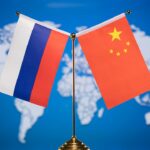China’s top economic planner on Tuesday vowed to expedite the implementation of a new mechanism for public-private partnership (PPP) projects and revise the rules for operating licenses involving infrastructure facilities and public utilities, in a bid to boost private investment and give it wider market access.
The remarks came after China’s tone-setting Central Economic Work Conference last week called for the implementation of new mechanisms for cooperation between the government and private capital, and support for private capital’s participation in new infrastructure and other areas.
In November, the National Development and Reform Commission (NDRC), the top economic planner, and the Ministry of Finance released a guideline on the new mechanism for PPPs.
The document, among other things, stressed that private enterprises will be given more support to participate in PPPs.
At a press conference on Tuesday, Li Chao, an NDRC spokesperson, said that the agency, along with other government departments, has accelerated system building and policy interpretation in order to effectively implement the new mechanism.
The NDRC is developing support policies for the new mechanism, by studying and drafting two supporting documents, as well as revising a document regarding the license periods for infrastructure projects and public utilities that was published in 2015, Li Chao said.
The NDRC will accelerate work on the revision of the document on managing the licensing of infrastructure and public utilities, and it will also solicit suggestions for the new PPP mechanism, Li Chao said.
Li Chao added that the commission will improve the role of the new mechanism in optimizing the construction and operating level of infrastructure and public utility projects, broadening the space for private investment and stimulating the vitality of private investment.
The measures aim to change the existing PPP mechanism, with a focus on the user-pay principle and maximizing the participation of the private sector, and further promoting private investment in the high-quality development of the Chinese economy, experts noted.
The existing PPP mechanism has faced difficulties as few providers of private capital have participated, Li Changan, a professor at the Academy of China Open Economy Studies of the University of International Business and Economics, told Global Times on Tuesday.
As most PPP projects are public works, with a long benefit period and low charges, the fiscal and financial departments should offer measures to encourage and support the participation of the private economy in the sector, Li Changan said.
In the revised document on managing licenses involving infrastructure projects and public utilities, the term of such licenses will be been extended to no more than 40 years from no more than 30 years, with longer extensions for capital-intensive projects with long payback periods.
The NDRC will establish rules and regulations in accordance with the law to supervise and promote the equitable, efficient and healthy development of PPP projects, according to Li Chao.
Optimizing the PPP mechanism could encourage private capital to participate in infrastructure and public utility projects in China and abroad.
In construction along the Silk Road Economic Belt, the PPP mechanism has attracted domestic and foreign social capital, which benefits the dual circulation of the economy, Wang Yiwei, director of the Institute of International Affairs at the Renmin University of China, told the Global Times on Tuesday.
China has introduced policies and initiatives to support the development of the private economy this year, providing comprehensive assistance. However, the most important factor in developing the PPP mechanism is to create a level playing field for the private economy, Li Changan said.
The Central Economic Work Conference also vowed to implement regulations involving market access, access to the factors of production, fair law enforcement, and protection of rights and interests to promote the development and growth of private enterprises.
(Global Times)



